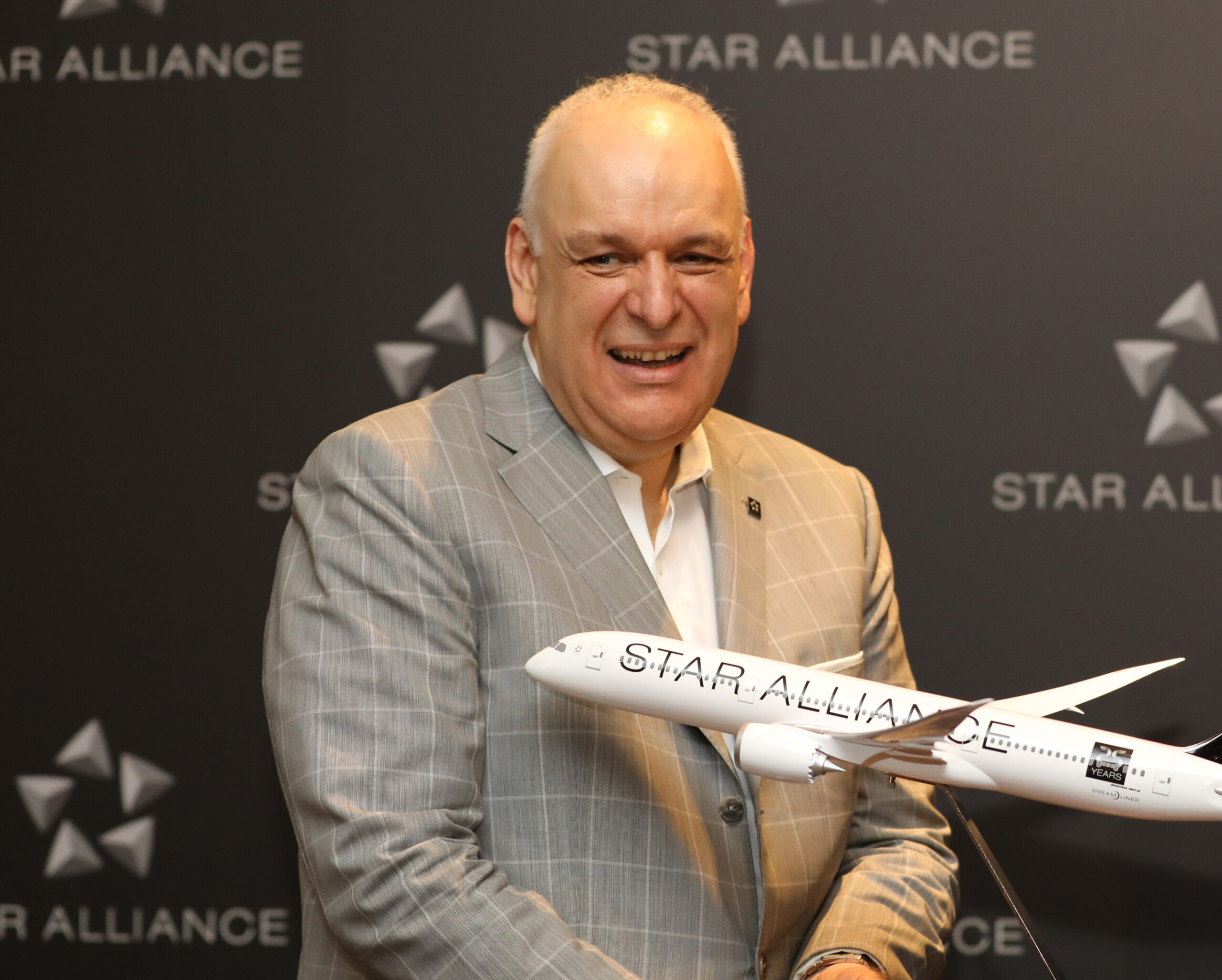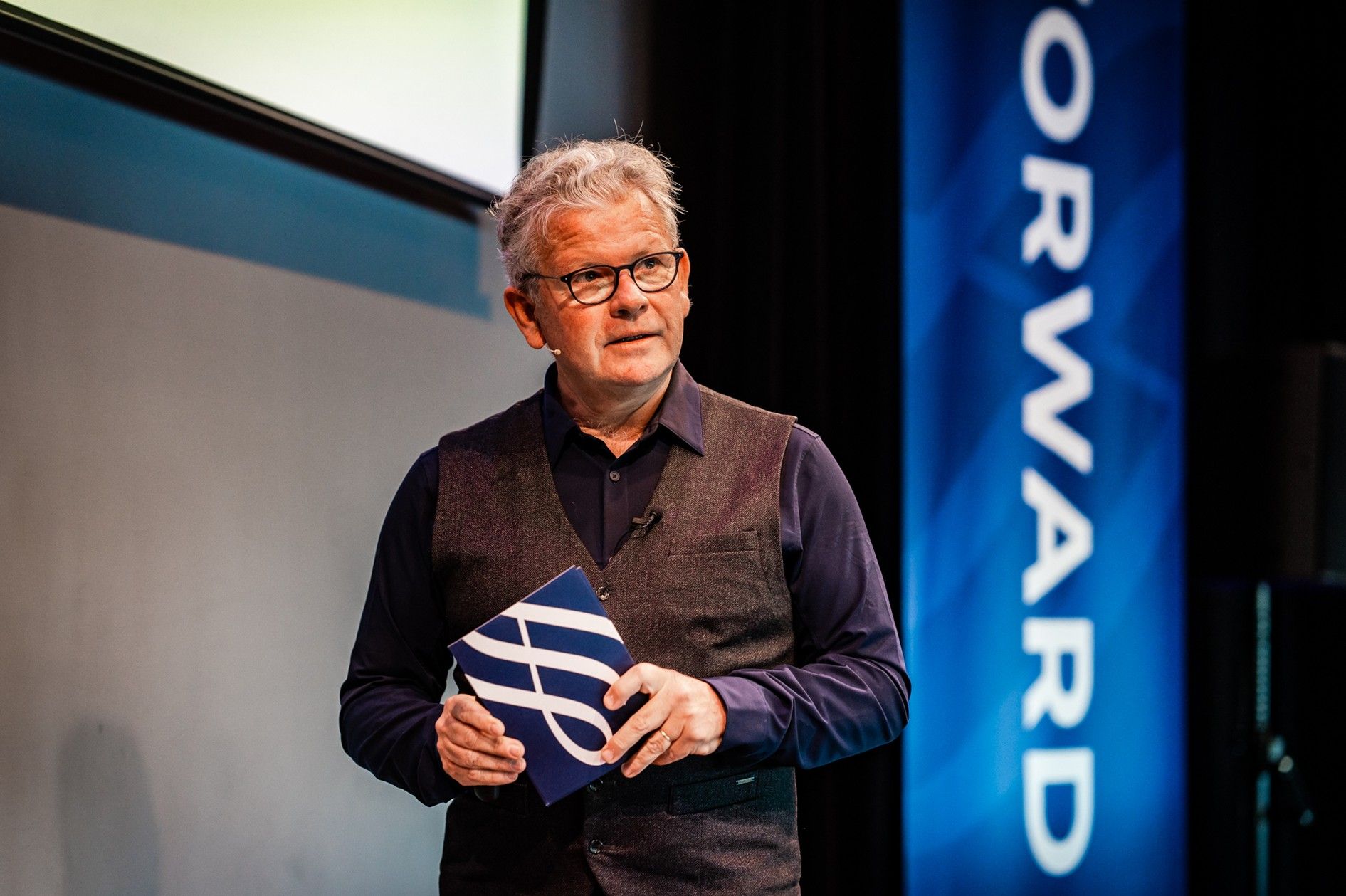Questlove Is Ready for the Next Phase of His Career
The Oscar- and Grammy-winning musician, filmmaker, author, entrepreneur and publisher continues to do it all. But now he’s also taking a longer view of life, focusing on a message of health, community and education that will inform his legacy
February 1, 2024
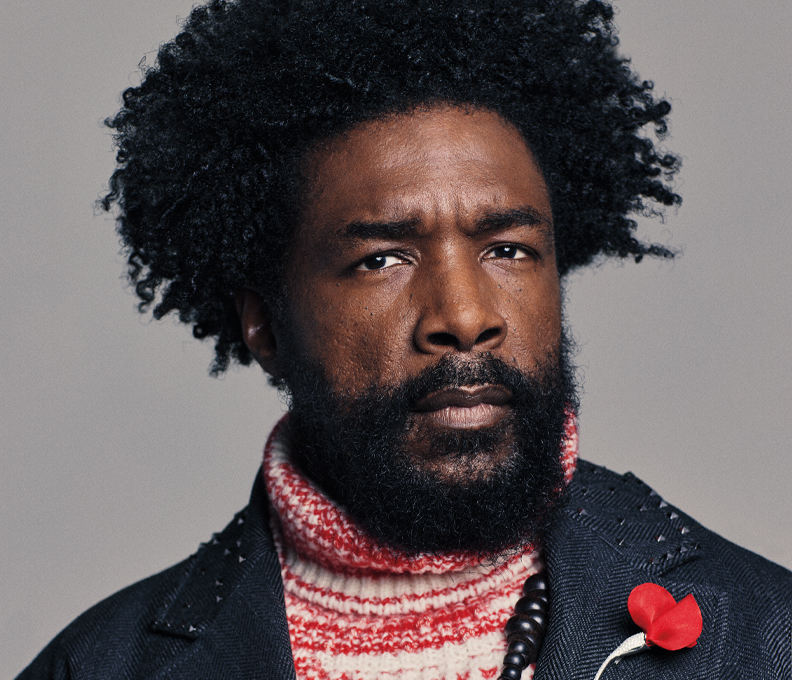
Questlove / Photo: Courtesy of Michael Schwartz/Trunk Archive
Questlove is looking forward to retirement. Not that it’s happening anytime soon. After all, this year the Academy Award-winning filmmaker, drummer, DJ, producer, director, culinary entrepreneur, New York Times bestselling author and cofounder of the iconic hip-hop group the Roots is producing a documentary about legendary funk singer Sly Stone, releasing his next book, Hip-Hop Is History, and helping culinary arts students make their dreams come true.
“What I’m doing now is kind of uncharted territory,” says the modern-day Renaissance man, born Ahmir Khalib Thompson. “This is beyond being a multihyphenate. A big part of the idea or illusion of Questlove is I work nine jobs and I’m so hardworking. Maybe my life goal is to show people that it’s cool not to work so hard.”
To hear him tell it, this latest burst of creative projects and business endeavors came about as a trauma response to winning an Oscar for his critically acclaimed documentary Summer of Soul, which premiered in 2021. The film, which uncovered largely forgotten footage of the Harlem Cultural Festival during the summer of 1969, features concert performances by musical luminaries including B.B. King, Mahalia Jackson, Stevie Wonder, Nina Simone, Sly and the Family Stone, Gladys Knight & the Pips and the 5th Dimension. Summer of Soul was the highest selling documentary to come out of the Sundance Film Festival and later won Best Documentary Feature at the 2022 Academy Awards, among other accolades.
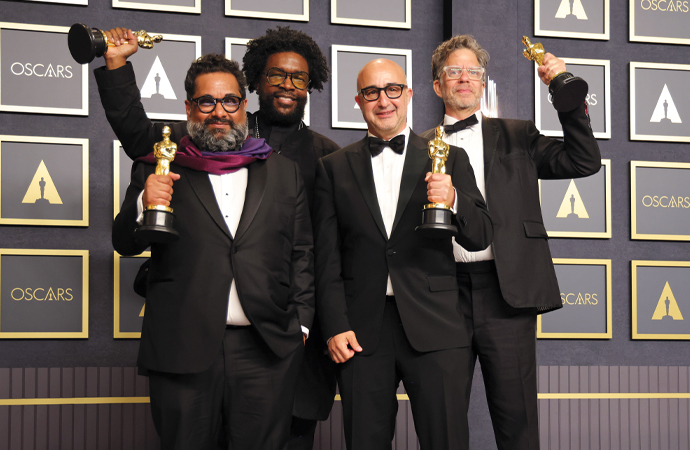
Winning an Academy Award for Summer of Soul with Joseph Patel, David Dinerstein and Robert Fyvolent / Photo: Momodu Mansaray/Wire Image/Getty
“Suddenly everything I ever wanted to do was at my doorstep,” he says. “I was like, ‘Yes, I’ll do that and I’ll do that and I’ll do that.’ Then someone told me, ‘Congratulations, you actually wound up at ground zero.’ ”
At first, the filmmaker took the statement as a compliment. Then he realized it for what it actually was: a much needed wake-up call.
“Basically they were saying I had regressed,” says Thompson, who is also the musical director of The Tonight Show Starring Jimmy Fallon, on which the Roots have performed as the house band since 2014. “My panic reaction to Summer of Soul was to grab everything because it might not happen again. Once I whittle these nine projects down to a normal level, then I’m dead serious: I’m going to try my hardest challenge, which is not working as hard and not using work as a distraction from the things I really should be doing, like starting a family with my girl. I don’t want to be the same person in my mid 50s as I was when I was 20.”
In preparation for the next phase of his career, Thompson is taking cues from another hip-hop giant, André 3000, who famously took a 17-year hiatus from music (save for the occasional guest verse and flute-wielding selfies with fans) before releasing New Blue Sun, his first solo album, in November. “Probably the most important lesson of André 3000’s journey is the fact that he had the wherewithal to actually say, You know what? I need to sit down and not do something,” says Thompson, reflecting on his upbringing in West Philadelphia and the fight-or-flight mentality he inherited from his parents. Indeed, both of Thompson’s parents, Lee Andrews and Jacquelin Thompson, were entertainers, but his dad, who was the lead singer of the ’50s doo-wop group Lee Andrews & the Hearts, didn’t initially approve of his son’s musical path.
“He wanted me to go to a certain college and get this level of education and then do classical music,” recalls Thompson. “You know, the whole respectability-politics thing. When you’re raised by fight-or-flight parents, your safety is more important than your happiness. So hopefully I’m the last generation to be raised by adults who would tell you to have something to fall back on.”

Questlove with the Roots, the house band for The Tonight Show Starring Jimmy Fallon / Photo: Todd OWYoung/NBC
The Questo Manifesto
On the flip side, the Roots’ longtime manager, Richard Nichols, had bigger plans for the band that went beyond music. Nichols died of leukemia in 2014, but during the last months of his life he wrote what Thompson now refers to as the “Questo Manifesto.”
“He basically said take this booklet and follow it. I saw a list written down and manifested without my permission,” says Thompson. “His last words to me were essentially, ‘If you’re broke by 75, that’s not my fault.’ He always thought and dreamed for me bigger than I dreamed for myself.”
Although Thompson initially scoffed at the list, he eventually came around. A few of the tasks mentioned—write a book, open a restaurant, start a production company—have already come to fruition. At nearly every turn, however, Thompson admits to being confronted with self-doubt and second-guessing. Even with Summer of Soul, there were moments of self-sabotage.

Gladys Knight & the Pips performing in the documentary Summer of Soul / Photo: Searchlight Pictures/@2021 20th Century Studio
“It took them seven months to force me to do it—I had all of these excuses, lies and canceled meetings,” he says. “Finally it was like, Yo, dawg, stop running from your destiny. You’re the only person to tell this story.”
Now Thompson is picking up momentum. In spring 2023, he took Nichols’ manifesto even further and launched AUWA Books, his own imprint under MCD Books, a publishing division of Farrar, Straus and Giroux. The imprint—which takes its name from the bird sound made famous by Prince, one of Thompson’s favorite artists, in songs such as “Baby I’m a Star” and “Eye No”—is home to both fiction and nonfiction titles with a mix of music and memoir. For Thompson, who has written and coauthored several books, publishing was the next logical step.
So far, AUWA has released Thank You (Falettinme Be Mice Elf Agin), the highly anticipated memoir from Sly Stone cowritten with novelist Ben Greenman. Forthcoming titles include Thompson’s Hip-Hop Is History and Loud by podcaster and TikTok influencer Drew Afualo. Meanwhile, last fall, Thompson and Roots cofounder Tariq “Black Thought” Trotter sold a significant stake of their production company, Two One Five Entertainment, to Peter Chernin’s global, multi-genre studio, The North Road Company.
“All the stuff I’m doing now, I didn’t go to school for this,” he says. “I taught at NYU [New York University], but I didn’t go to NYU film school. If you look back at my report cards, it might be questionable whether I’m qualified to write books and instruct people. But I have life experience and I love research. All these things I’m doing now are pretty much an act of faith.”
Turning a New Page
While writing and publishing books would be more than enough for most people, Thompson also keeps his mind sharp by reading personal-development books by the likes of Joe Dispenza, Neville Goddard and José Silva. He even starts every morning listening to a chapter of The Gene Keys by spiritual teacher Richard Rudd.
“That helps me probably more than anything to get out of my head,” he says. “Because if you start your day and the first 10 hours are eaten up already with work, you tend to get overwhelmed and that’s how the trouble starts.” These days, Thompson is prioritizing both his joy and his mental health along with his physical health.
“Especially in this country, Black people and emotions have had a hard way of navigating and amalgamating with each other, because it hasn’t been safe for us to express those things,” he reflects. “You get penalized if you show anger. You get teased and ridiculed if you show a level of happiness or vulnerability, especially with men.”
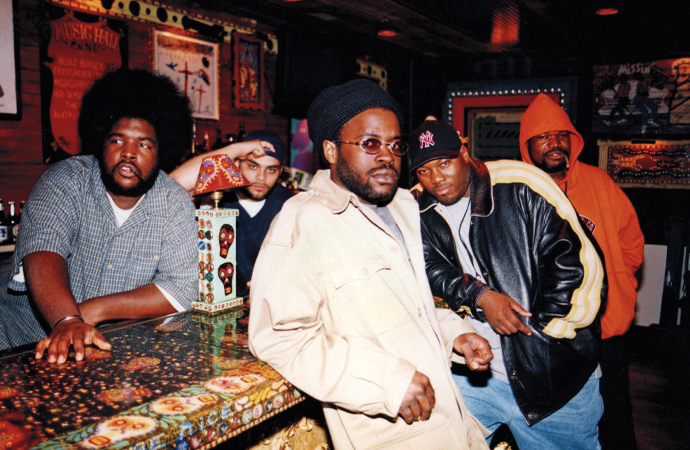
The Roots—Ahmir “Questlove” Thompson, Kamal Gray, Tariq “Black Thought” Trotter, Rozell “Rahzel” Brown and Leonard “Hub” Hubbard—in Chicago, 1998 / Photo: Raymond Boyd/Getty Images
After writing one too many online tributes for friends who have died from strokes and other health-related issues, Thompson began paying closer attention to his own health. “My whole life goal in the ’90s was not to get shot in the club,” he says. “Then one day you turn 30 and you’re past that part and you realize there’s another challenge we’ve got, which is to exist and be healthy.”
A Lasting Legacy
Currently, the life expectancy for Black Americans is about 71 years old, which is six years lower than white Americans, according to a 2022 report from the Centers for Disease Control and Prevention. Although the overall number was largely attributed to deaths from the Covid pandemic, other causes include heart disease, chronic liver disease and suicide. There’s no denying that health disparities in the U.S. have also played a role and Thompson is on a mission to help bridge that gap.
“I always imagined if I gave back to somebody, I want to give back to an ideal imaginary version of Ahmir, whoever he or she is,” Thompson says. “I imagine somewhere right now in West Philadelphia there’s an individual who’s had to live the same life I did.” As a result, Quest Loves Food was developed. Thompson’s investment portfolio includes mostly plant-based brands, such as Impossible Foods, home of his famous Questlove’s Cheesesteak; high-protein cereal brand Magic Spoon; Ocean Hugger Foods, a vegan seafood brand; and RightRice, a shelf-stable grain composed of vegetables such as lentils, chickpeas and peas.
“We didn’t have access to that when I was younger. We’d have to go farther into the suburbs to get those things,” he says. “I have friends who are still living in West Philadelphia who are vegan and want a cleaner, more sustainable lifestyle, and they literally can’t afford to do that because some of the worst foods are the ones that are accessible.”
In 2017, Thompson’s passion for the culinary arts and equity in education led to him joining the board of the Food Education Fund, a New York City-based nonprofit that prepares high school students for careers in culinary arts, hospitality and entrepreneurship. Then, in 2021, he co-founded the Future of Food Entrepreneurship Program, a four-week summer program that provides high school students from historically disenfranchised communities with insight and opportunity into the emerging food and agriculture tech industries. Future of Food board chair and Boardwalk Collective CEO Ryan Shadrick Wilson says, “I’ve had the opportunity to work with many athletes, musicians and celebrities, but Ahmir stands out for his authentic interest, passion and commitment to making more sustainable and healthy options available for more people.”
In addition to investing in plant-based companies, Thompson is also adamant about raising awareness concerning environmental racism. After exploring his family history on the PBS show Finding Your Roots with Henry Louis Gates, Jr., Thompson learned that descendants of the Alabama slave owner who commissioned the Clotilda, the last known slave ship to arrive in the United States (53 years after the 1807 Act Prohibiting Importation of Slaves), also owned several factories and chemical plants near Africatown, a small town three miles north of Mobile founded by Clotilda survivors. “Half the town succumbed to cancer because of all the toxicity from the factories. That’s a different level of environmental racism we haven’t even started to bring up yet,” Thompson says. “We have to start addressing the environmental issue, our health, our education, all of those things. If I can give a personal platform to these issues, then so be it. That’s what I want to do with my life.” All of it is adding up to being part of the long-lasting legacy Thompson hopes to someday leave behind. “It’s hard being Questlove, the superhero, and also Ahmir Thompson, the Clark Kent,” he admits. “If I want to live long enough to see my own family, my own legacy, to know what true happiness is, I have to not fall back into old habits of overworking and avoiding confrontation. In order for me to evolve as a human being and live, this is what I have to do.”
As for what’s next, Thompson is working on several films that tackle questions about metaphysics, spirituality and class issues, among other projects. So retirement will inevitably have to wait a little while longer.
“When Jay-Z was saying, ‘I’m gonna retire,’ I used to laugh at that, like Black people don’t retire,” he says. “It’s sad that I say that, but basically it means that we don’t feel safe to just stop and be. So I’m looking forward to that.”


